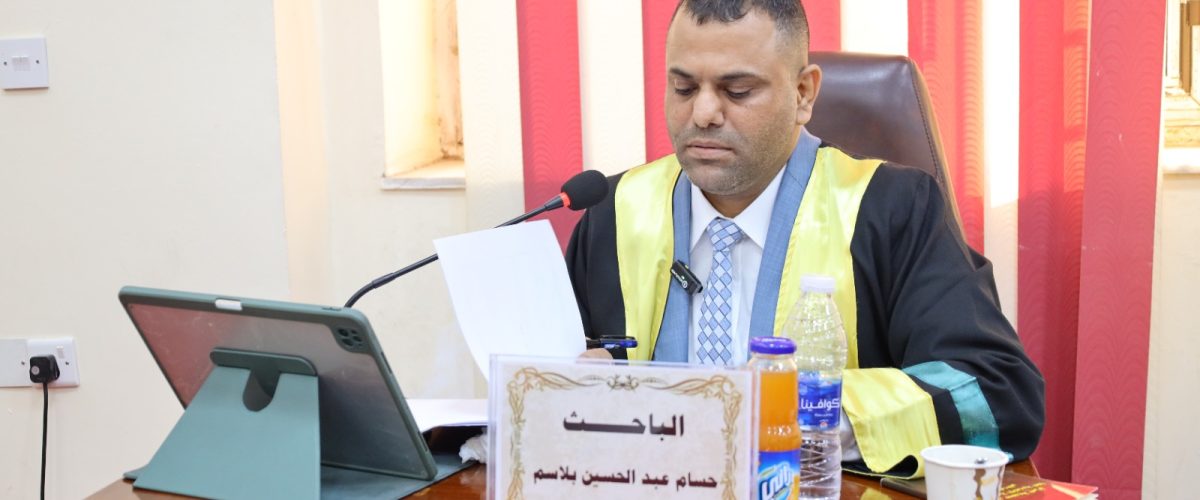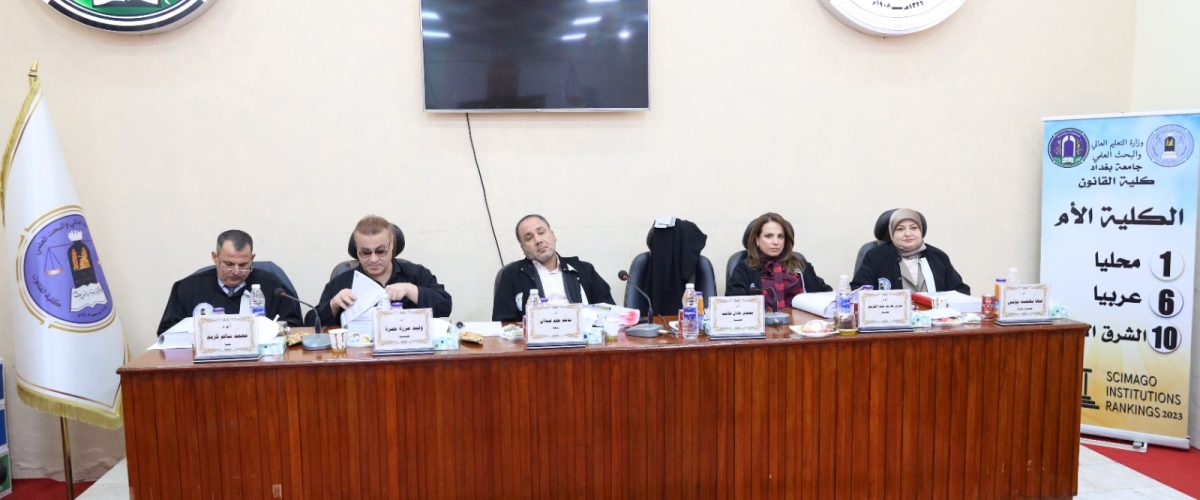On Thursday, September 11, 2025, the College of Law at the University of Baghdad held a discussion of a dissertation entitled “The Methods of the Supreme Federal Court in Expanding the Scope of Constitutional Review of Laws – A Comparative Study” by the PhD candidate Hussam Abdul-Hussein Blasim, from the Public Law. The discussion took place in the Conference Hall.
The examination committee consisted of the following professors:
- Prof. Dr. Majid Najm Aidan (Chairman)
- Prof. Dr. Waleed Mirza Hamza (Member)
- Prof. Dr. Musadaq Adel Talib (Member)
- Asst. Prof. Dr. Mohammed Salim Kareem (Member)
- Asst. Prof. Dr. Sura Harith Abdul-Karim (Member)
- Prof. Dr. Maha Bahjat Younis (Member and Supervisor)
Dissertation Overview:
The dissertation aimed to examine and trace the directions adopted by the Supreme Federal Court in employing various methods to expand the scope of constitutional review of legislation. These methods include:
- Expansive constitutional interpretation,
- Review of legislative omission,
- Initiative-based (proactive) constitutional review, and
- Proportionality review.
- Structure of the Dissertation:
The dissertation is divided into two main chapters:
- Chapter One focuses on the active methods used by the Court to expand the scope of constitutional review.
- Section One deals with expansive constitutional interpretation as a tool for expanding review.
- Section Two addresses review of legislative omission as another method.
- Chapter Two covers the passive (negative) methods employed by the Supreme Federal Court to expand its scope of review.
- Section One discusses initiative-based review (proactive stance).
- Section Two explores proportionality review as a means of constitutional oversight.
- Key Recommendations:
- The Supreme Federal Court is encouraged to adopt an expanded approach to constitutional interpretation, as it is considered the most suitable tool for addressing deficiencies, contradictions, or legislative gaps in constitutional texts.
- The Court should move toward adopting absolute (comprehensive) review of legislative omission, rather than limiting itself to relative (partial) omission review.
- The Supreme Federal Court should expand its use of initiative-based (proactive) constitutional review to strengthen its oversight role.



